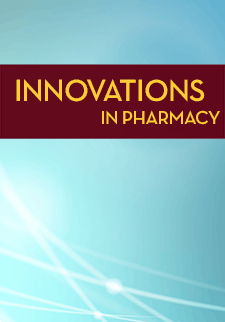Enhancing the Public Health Role of Community Pharmacists – A Qualitative Research Utilising the Theoretical Domains Framework
Chijioke O. Agomo
The Institute for Work Based Learning, Middlesex University, Hendon, London
James Ogunleye
The Institute for Work Based Learning, Middlesex University, Hendon, London
Jane Portlock
University of Sussex
DOI: https://doi.org/10.24926/iip.v11i4.3393
Abstract
Introduction: The current global coronavirus (Covid-19) pandemic has once again highlighted the need to enhance the role of community pharmacists in public health. In 2012, the World Health Organisation (WHO) estimated that global deaths due to non-communicable diseases (NCDs) as about 38 million (68%). Most of these conditions are preventable through public health initiatives involving community pharmacists. This study aims to explore strategies enhancing the public health role of community pharmacists.
Methods: Data was collected through telephone interviews, supported by Skype (audio), and recorded using the 'HD Call Recorder for Skype'. The qualitative data software package NVivo (version 10) was used for the storage, retrieval and analysis of data. The constant comparative method of data analysis was used. In addition, the Theoretical Domains Framework (TDF) was used to underpin the research throughout.
Results: This study identified a number of strategies that could enhance the public health role of community pharmacists, some of which include: integrating undergraduate healthcare programmes; broadening the public health knowledge of students and pharmacists; pharmacists working alongside other healthcare professionals; teaching communication methods to students and pharmacists; teaching the use of new technologies and social media; etc. In addition, most of the 14 domains of TDF and several of their constructs were captured in the interview.
Conclusions: To enhance the public health role of community pharmacists, it is necessary to develop pharmacists’ capacity in several areas, particularly as it relates to, the use new technologies and social media in public health; enhancing training of pharmacists/students in public health; empowering pharmacists in public health; as well as teaching communication methods to students and pharmacists. Part of the strategy will also be, to integrate healthcare programmes through interdisciplinary initiatives, and changing the undergraduate pharmacy curriculum to increase its public health content.
Article Type: Original Research



